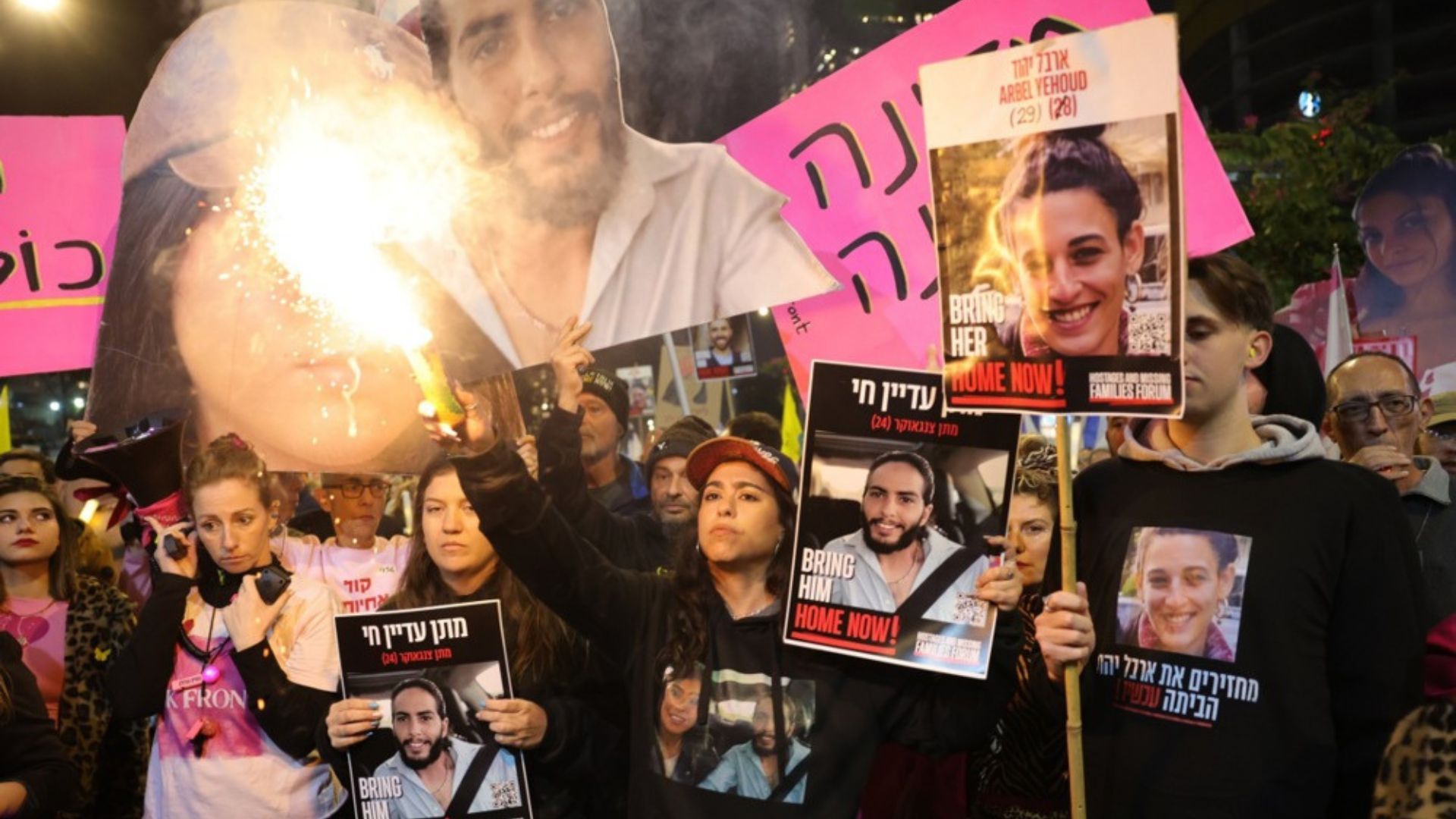(VoA): Israeli Prime Minister Benjamin Netanyahu's insistence that Hamas produce a list of the three hostages scheduled for release that day caused a delay in Sunday morning's expected ceasefire between Israel and Hamas. Netanyahu said the truce, which was originally scheduled to start at 8:30 a.m., would not start until the list was given.
Despite the delay, Hamas reiterated its commitment to the ceasefire deal and ascribed it to "technical reasons." The truce, which was proclaimed last week and mediated by mediators, will continue, the organization said.
The ceasefire agreement was approved by the Israeli Cabinet after considerable deliberation. The accord, announced by mediators Qatar, the United States, and Egypt, included the release of hostages and prisoners and a three-week ceasefire.
The agreement's first phase calls on Hamas to free 33 Israeli hostages, including women, children, the elderly, and those who are ill. In exchange, Israel intends to free more than 2,000 Palestinian detainees from Israeli prisons.

The White House declared on Sunday afternoon that the Red Cross will be bringing three female hostages to Israel. Details of the arrangement indicate that more hostages will be released in the upcoming weeks in exchange for more Palestinian prisoners.
Netanyahu emphasized that Israel would not tolerate any violations of the agreement and placed responsibility for adherence to the terms on Hamas. He reiterated that the ceasefire framework supported Israel’s objectives in the ongoing conflict.
Israel’s National Security Minister Itamar Ben-Gvir resigned in protest over the ceasefire agreement, criticizing it as reckless and claiming it undermined the country’s military gains. His departure highlighted internal divisions within Netanyahu’s Cabinet.
Hamas, labeled a terrorist group by the U.S., U.K., and others, issued a statement accusing Israel of failing to achieve its objectives and committing what it described as war crimes. It maintained that its actions were in response to Israel’s military operations.
Hamas conducted a devastating attack on Israel on October 7, 2023, killing over 1,200 people and taking roughly 250 hostages. The fight began at this point. Although many hostages remain in captivity, Israel estimates that about one-third of them have died.
Since the October raid, Israeli military actions in Gaza have resulted in significant destruction and fatalities. Although Gaza health officials report almost 47,000 deaths, primarily among women and children, Israel maintains that many of the deaths were caused by terrorists.
Egypt would allow 600 trucks a day to enter Gaza with humanitarian aid, including gasoline, as part of the truce accord. Egypt's foreign ministry verified the logistical plans for the supply delivery.
Despite the announcement of the ceasefire, Israeli strikes on Gaza continued. Over 50 targets were hit on Friday, and attacks persisted into Saturday, according to Israeli military statements. In one incident, five people were killed in southern Gaza.
The Palestinian Civil Emergency Service reported that at least 123 Palestinians have been killed in Israeli attacks since the ceasefire deal was made public. Residents described shelling and airstrikes in various parts of Gaza during this period.
Israeli forces are anticipated to withdraw to Gaza's borders as part of the truce, allowing displaced Palestinians to reenter what is left of their homes. Increasing the flow of help into the severely devastated enclave is another goal of the deal.
Hamas has been under pressure to uphold the agreement, especially in terms of guaranteeing the hostages' release as agreed. Name delays have sparked concerns about the group's capacity to effectively oversee the pact.
Hostages and captives would be released in phases over several weeks, with seven-day breaks for further exchanges following the initial release, according to negotiators, including U.S. envoy Brett McGurk.
As foreign mediators attempt to preserve the tenuous truce, both sides are still being questioned about how well they are adhering to its conditions. The ceasefire is thought to be a possible step in bringing the 15-month battle to an end.
Many Gazans are now dependent on humanitarian help due to the destruction of the infrastructure caused by the war. It is believed that the ceasefire scheduled assistance supplies will be essential to easing the humanitarian catastrophe.
As Israel and Hamas negotiate the agreement's implementation under continued mistrust and outside pressures, the situation is still tight. The ceasefire resolution may pave the way for additional war developments.




























